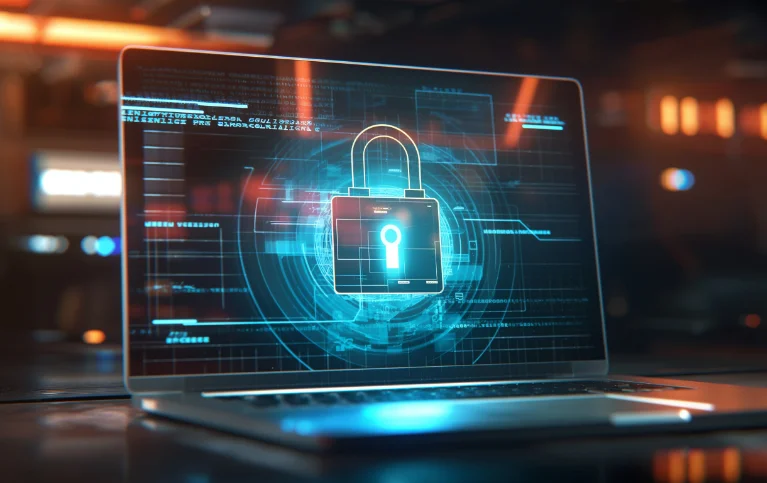Working from home has become a norm for many, but it comes with its own set of cybersecurity challenges. With sensitive information being accessed remotely, the risk of cyber threats and data breaches increases. It’s crucial to take the necessary steps to protect both your personal and professional digital life. In this post, we’ll share practical tips on how to stay secure while working from home.
1. Use Strong, Unique Passwords
One of the easiest and most effective ways to protect your digital life is by using strong and unique passwords for all your online accounts. Avoid using simple passwords like “123456” or “password.” Instead, create long passwords using a combination of upper and lower case letters, numbers, and special characters. Additionally, it’s important to avoid using the same password across multiple sites.
Consider using a password manager to keep track of your credentials securely. These tools generate strong passwords and store them in an encrypted vault, ensuring you don’t have to remember them all.
2. Enable Multi-Factor Authentication (MFA)
Multi-factor authentication (MFA) is an extra layer of security that requires you to verify your identity using more than just your password. For instance, you might be asked to enter a code sent to your phone or email, or use a fingerprint scan. This makes it much harder for cybercriminals to gain access to your accounts, even if they manage to steal your password.
Enabling MFA on all your important accounts—such as email, banking, and social media—helps ensure that your information remains secure even if your password is compromised.
3. Secure Your Wi-Fi Network
Your home Wi-Fi network is the gateway to your online activity. If not properly secured, hackers can easily access it and potentially gain access to your devices. To protect your Wi-Fi network, make sure to change the default username and password that came with your router, and enable WPA3 encryption for maximum security.
Additionally, avoid using public Wi-Fi networks for sensitive activities like online banking or accessing work files. If you must use public Wi-Fi, consider using a Virtual Private Network (VPN) to encrypt your internet connection and protect your data from prying eyes.
4. Install Anti-Virus and Anti-Malware Software
Protect your devices from viruses, malware, and other cyber threats by installing comprehensive anti-virus and anti-malware software. These tools continuously monitor your system for suspicious activity and help block malicious programs before they can cause harm.
Make sure your anti-virus software is always up to date, as new threats are discovered regularly. Regularly running scans and keeping your software updated will ensure that you are always protected from the latest threats.
5. Be Careful with Phishing Scams
Phishing attacks are one of the most common ways hackers try to steal personal information. These attacks usually come in the form of emails or messages that appear to be from a trusted source, such as a bank, a coworker, or a well-known company. The message will often ask you to click on a link or download an attachment, which can install malware on your device or steal your credentials.
To avoid falling for phishing scams, always double-check the sender’s email address, and never click on suspicious links or download attachments from unknown sources. If you’re unsure about the legitimacy of an email, contact the person or company directly via a trusted communication channel.
6. Keep Software and Operating Systems Updated
Software updates aren’t just about adding new features—they also include important security patches that fix vulnerabilities that hackers could exploit. Be sure to keep all your devices’ operating systems and software up to date with the latest security patches.
Enable automatic updates whenever possible, so you don’t have to remember to install them manually. This will help ensure your devices remain protected from known vulnerabilities.
7. Backup Your Data Regularly
Backing up your data regularly is crucial in case your device is compromised by malware or ransomware. Having a backup ensures that you don’t lose important documents, photos, or files if your device is attacked.
Use cloud storage or an external hard drive to keep copies of your important files. Make sure these backups are secure by encrypting them, so that even if they are accessed by unauthorized users, the information remains protected.
8. Separate Work and Personal Devices
If possible, keep your work and personal devices separate. This means using a dedicated work laptop or desktop and avoiding the use of personal devices for work-related tasks. This minimizes the risk of cross-contamination between your personal and professional data.
If you have to use personal devices for work, make sure they are equipped with security software and follow the same security measures as your work devices. It’s important to establish a secure work environment to protect both your company’s data and your own personal information.
9. Educate Yourself and Others
Staying informed about the latest cybersecurity threats and best practices is essential for protecting your digital life. Regularly read up on common scams, new malware threats, and the latest security trends. Share this knowledge with family members or housemates who also use your devices, as everyone in the household needs to be vigilant.
Many successful cyber-attacks begin with human error, so the more aware you are, the better equipped you’ll be to avoid falling victim to attacks.
Conclusion
Working from home comes with its own set of cybersecurity risks, but by following these simple guidelines, you can significantly reduce the chances of a security breach. By using strong passwords, enabling multi-factor authentication, securing your Wi-Fi network, and installing up-to-date anti-virus software, you’ll be well on your way to creating a secure digital workspace. Remember, taking small steps to protect your data can make a big difference in keeping your digital life safe while working from home.
At Blake Secure Technologies, we understand the importance of cybersecurity, and we are here to help protect your devices with cutting-edge anti-virus solutions that give you peace of mind while working from home.

